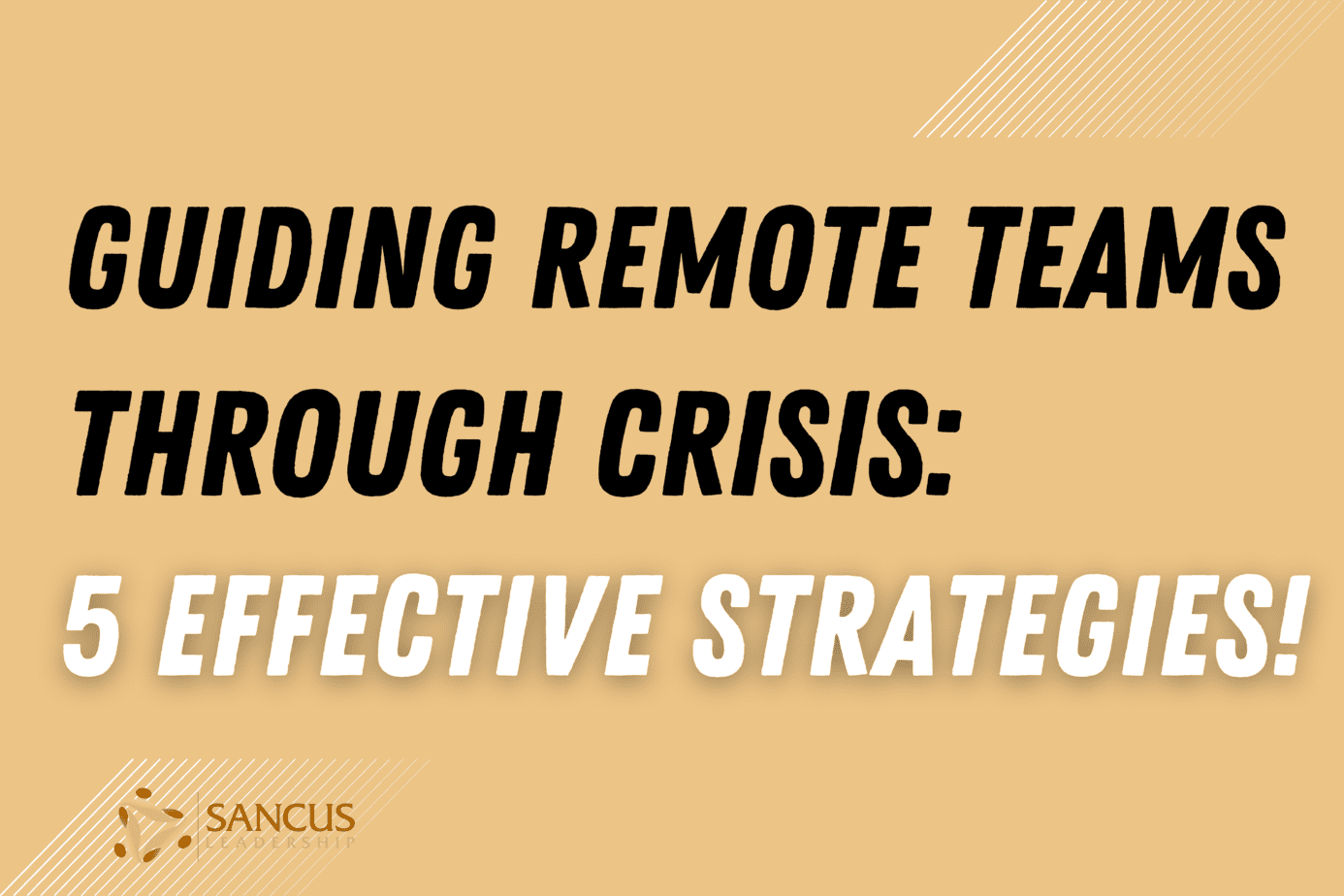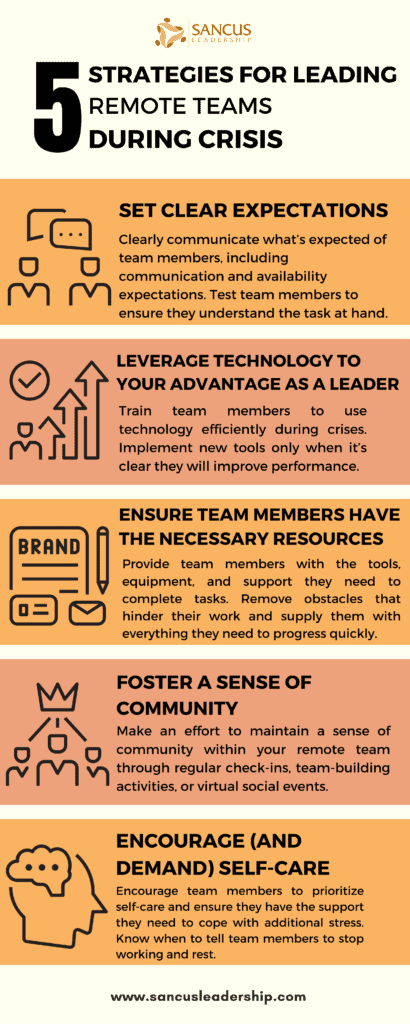Your cart is currently empty!

5 Strategies For Leading Remote Teams During Crisis!
Leading a fully remote team has been a new challenge for me as a business owner and a leader; the interaction is usually more formal, and there are no water coolers to hang out by. This makes trust-building less organic but just as important. And trust is vital when a crisis inevitably comes.
Managing a remote/hybrid team through a crisis requires the leader to set clear expectations, leverage technology, provide resources, encourage community building, and demand self-care. Too often, crises are handled as unique events needing novel solutions; this is not the case.
Generally, whether we communicate through a lit-up painting (aka screen) or face-to-face doesn’t matter. We are still human beings with human needs and behaviors. But there are some benefits and drawbacks worthy of our attention.
When leading remote teams during crises, leaders can leverage the following five strategies:
1. Set Clear Expectations

Just as in real life, It’s essential to be clear about what’s expected of team members during this time, including communication and availability expectations. The difference in a remote setting is that it’s usually much harder to understand if your people really understand the task.
As a leader, you need to be willing to touch “the line of being annoying” to make sure they understand the task, and you do this because you care about them and the mission.
As a leader, you need to be willing to touch “the line of being annoying” to make sure they understand the task, and you do this because you care about them and the mission.
If they don’t understand the task correctly, the team will struggle with reaching their goals, and if they have to redo a task, this usually leads to frustration.
Test your team to understand the mission at hand at the level needed for them to do a good job! Set them up for a win!
2. Leverage Technology to Your Advantage as a Leader

There are many tools and platforms available that can help to facilitate communication and collaboration within remote teams.
Thinking you need the coolest gadgets and the latest software for effective communication is a mistake. Instead, you must train your team to use those tools efficiently during different situations, such as crises.
Back at the EOD teams, every time we implemented a new set of tools, It took us a month or two before we were at the same level of proficiency as when we got the tools. It takes a lot of time to learn to use new devices effectively.
General guideline: Implement new tools (software, hardware) only when you know it's going to Improve performance by a factor of two, do this before or after a crisis!
3. Ensure Team Members Have the Necessary Resources

Provide your team with the tools and equipment they need and training and support to help them adjust to a new environment.
The one executing the task is the one who knows best what is needed.
For someone to know what they need, they need to understand the mission they are supposed to complete.
This comes down to you as a Leader needing to be ultra-specific in the task delegation.
When you know they have fully understood the task, then you can start asking about which resources they need and start supplying them. And if you are an excellent leader, you would be on the forefoot and have already provided them with the necessary things.
We, as leaders, should do two things for our teams:
- Number one, remove obstacles so they can work unhindered as much as possible.
- And number two, supply them with everything they need to keep the speed of progress high.
Ask them what is vital for their success, and focus on providing that.
4. Foster a Sense of Community

Remote work can be isolating, so it’s vital to make an effort to maintain a sense of community within your team. This could involve regular check-ins, team-building activities, or virtual social events.
Remote work can be isolating, so it’s vital to make an effort to maintain a sense of community within your team.
Make sure if you choose to go the route of team building that, you understand why you are doing it. If it’s to build trust in your team, you should know that team building doesn’t do that.
You can read why team building doesn’t work and what to do instead here.
5. Encourage (And Demand) Self-Care

Crises can be stressful, and team members must take care of their physical and mental health. Encourage team members to prioritize self-care and ensure they have the support they need to cope with the additional stress.
The big problem is that people are often so engaged in solving the trouble that they forget about themselves. This is detrimental to the employee and the team; people will get overworked.
The big problem is that people are often so engaged in solving the trouble that they forget about themselves. This is detrimental to the employee and the team; people will get overworked.
I remember having one Highly productive guy on my team. You know, that type of person that never stops working and always delivers top-notch results. I would have to tell him to stop working and rest in high-intensity situations.
It might be tempting to push these High performing people even harder because they tend not to complain, but from my experience, that rarely works out.
Sometimes our responsibility as a leader comes down to telling people to stop. We MUST know when we have reached the level of good enough.

Here’s a quick but insightful video that leaders can learn from on how to better manage their remote teams.
